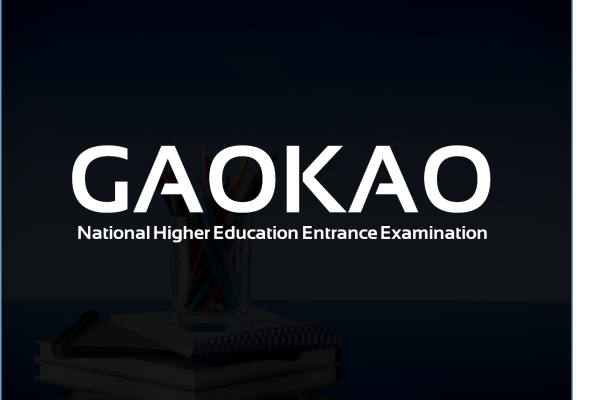Exam Date: August 17, 2025
Exploring the intensity, impact, and international relevance of China’s higher education exam.
The Gaokao (short for "Gao Kao", meaning "Higher Education Entrance Examination") is China's most critical and competitive national examination, held annually in early June. Taken by over 13 million students every year, this exam isn't just an academic hurdle—it’s a life-defining opportunity that determines a student's access to top universities in China and even abroad.
Often called the "World's Toughest Exam", the Gaokao spans multiple days and subjects, testing candidates on language proficiency, analytical skills, mathematical ability, and comprehensive knowledge in either science or humanities. It is not merely a school-leaving exam, but a national benchmark of talent, perseverance, and intellectual meritocracy.
A Global Benchmark in Academic Rigor
Increasingly, the Gaokao is being recognized on the global academic stage. Some international universities across Australia, the UK, the USA, Canada, and parts of Europe are beginning to accept Gaokao scores for undergraduate admissions, especially in cases where Chinese students prefer to apply directly from high school without other international exams like the SAT, ACT, or IB.
By doing so, these institutions acknowledge the depth and difficulty of the Gaokao—comparable to or even surpassing international standards in critical thinking, subject mastery, and endurance under pressure.
Why the Gaokao Matters (Locally and Globally):
For China: It is the central pillar of university admissions, promoting equal opportunity regardless of social background.
For the World: It offers a large, diverse, high-caliber pool of students for universities seeking academic excellence from the world’s most populous nation.
For Students: A strong Gaokao score opens doors to China’s elite universities (C9 League, Tsinghua, Fudan) and increasingly, international institutions that now accept Gaokao scores as part of direct admission schemes.
For Global Education Systems: It presents a case study in high-performance testing models, national scale assessments, and educational discipline.
Eligibility & Selection Criteria
Typically taken by final-year high school students (17–19 years old); repeaters are allowed.
Must hold high school credentials and provincial registration.
Exclusions: Current university students, incomplete school records, or individuals serving prison sentences.
Some provinces require a “Huikao” passing certificate (school-level academic proficiency).
- Syllabus & Exam Pattern
The Gaokao spans 2–4 days, covering both compulsory and elective subjects:
Chinese
Duration: 2½ hrs
Score: 150 marks (essay + reading)
Mathematics
Duration: 2½ hrs
Score: 150 marks (science/humanities streams)
Foreign Language (usually English)
Duration: 1½ hrs
Score: 100 marks (reading, listening)
Science Stream (Physics, Chemistry, Biology)
Duration: Each 1½ hrs
Score: 100 marks
Humanities Stream (History, Politics, Geography)
Duration: Each 1½ hrs
Score: 100 marks
Total exam time is around 9 hours, with provincial variations.
5.Usefulness & Significance
The primary gateway to Chinese higher education, determining university placements.
Seen as a strong symbol of meritocracy, providing a ladder for students from diverse backgrounds.
Inspires intense societal and parental emphasis; includes measures like AI-blocking during the exam to prevent cheating.
Exam Dates 2025
Test Period: June 7–10, 2025 (varies slightly by province)
Number of Candidates: ~13.35 million in 2025
Important Dates & Timeline
Late May–Early June: School-level “Huikao” completion
June 7–10, 2025: Written exams nationwide
Mid–Late June 2025: Grading across provinces (some through AI-assisted)
Late June: Most provinces release results (e.g., June 23–25)
Late June–Early July: University application opens immediately in many provinces
Provincial Variations:
Provinces like Beijing, Shanghai, Jiangsu, Zhejiang craft their own exam papers. Other provinces follow the national model.
Some provinces offer the “New Gaokao”, where candidates choose 3 of 6 elective subjects beyond the compulsory three.
The Gaokao is conducted nationwide across thousands of officially designated public schools. Security measures are rigorous, including facial recognition, electronic surveillance, and AI-based cheating prevention to ensure exam integrity.
Yes, adult learners and repeaters can take the Gaokao, provided they meet provincial registration criteria and educational prerequisites. Many provinces welcome independent applicants annually.
Yes, students may attempt the Gaokao multiple times, but the exam is offered only once a year—usually in early June. Many aspirants retake it after a "gap year" to aim for higher scores.
Universities use Gaokao scores to allocate seats based on provincial quotas. Some top-tier institutions may also require additional steps like interviews, essays, or performance in specific subject combinations.
Local exam authorities allow special arrangements such as Braille papers, extra time, or caregiver support. In 2025, over 14,000 candidates with disabilities received exam accommodations.
